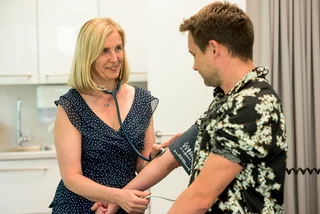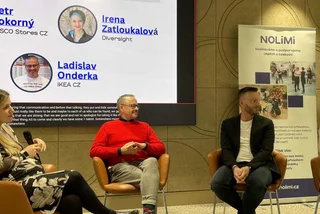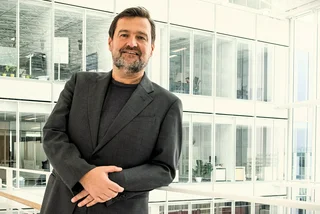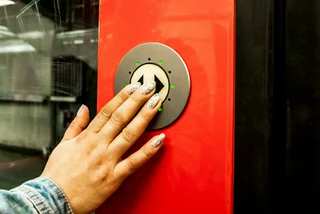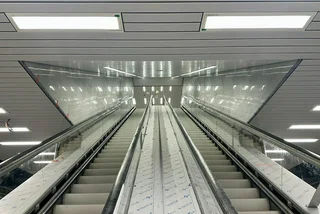A medicine shortage, long waiting times at opticians, and a general unavailability of dentists. Something is not right with Czechia’s medical industry, and analysts have been trying to find a diagnosis – and potential treatment.
Chronic shortages of drugs
This year pharmacies across the country have been reporting a shortage of several prescription and over-the-counter drugs. Penicillin, ibuprofen, cholesterol medicines, and allergy tablets are examples of just some of the medications that have been limited or rationed in recent months.
"In the 20 years that I have been in private practice, I do not remember such a shortage of penicillin," says Chairman of the Association of General Practitioners in Hospodářské noviny. The same publication dubbed it “the largest drugs shortage in history.”
Have you faced long waits to get an appointment with the doctor, dentist, or eye doctor?
Shortage of ingredients and other production problems, supply-chain issues, and corporate financial decisions are behind the reasons for a drug shortage in the country.
Systemic issues with acquiring certain medications are prevalent throughout Europe – not only in Czechia. Growing reliance on sourcing drugs from Asia, where two-thirds of the world’s medicinal substances are produced, is risky. Any disruption to a manufacturer (such as current Covid-19 measures slowing production in China) ultimately delays the shipping of drugs, Logistika.cz reports.
"Production in the EU is not competitive. Europe has been completely asleep for the past 20 years," says Executive Director of the Czech Association of Pharmaceutical Companies Filip Vrubel. Production, according to experts such as Vrubel, should take place more in the EU to reduce the continent’s dependence on Asia and lessen external dangers.
Opticians and their patients clearly see the problems
Waiting times of up to three months for an appointment with a Prague optician are also concerning. According to Andrea Janeková of the Ophthalmic Center Prague, Covid-19 lockdowns increased people's screen time, leading to eye-related strain and damages, as reported in Seznam Zprávy.
The increased demand for ophthalmological help that resulted is now straining resources.
Janeková says that demand has broadly increased by 30 percent, with patients who need help for certain conditions – such as myopia – rising by 60 percent.
Postponed surgeries caused by lockdowns have also contributed to the current pressure on eye departments in hospitals. According to the doctors interviewed by Seznam Zprávy, the pandemic has worsened an already-difficult situation fundamentally caused by a lack of eye specialists in the country.
The eye clinic of Brno University Hospital, for example, is the only specialist medical center in the whole of South Moravia that offers comprehensive ophthalmological care.
The current system of ophthalmology in Czechia is flawed, according to Janeková. It “is set up in such a way that in order for the office to be economically stable, the doctor must manage 30 to 40 patients in a normal eight-hour working day,” which is “very demanding even for experienced ophthalmologists," said the specialist.
Dental care causes headaches too
When a dentist announced last week that he would be accepting new patients, he almost definitely would not have expected the unfolding scenes.
Almost 1,000 people queued up – some overnight – outside Tomáš Kuča’s office in a desperate bid to be registered with a dentist, let alone get an appointment.
“Some people are literally on their knees for me to take them. They bring gifts, of course, I don't accept them,” Kuča said. Patients in areas with a low proportion of dentists can wait a long while for an appointment – one reader reported waiting for eight months.
Velká fronta v #Hustopece. PÅ™eÄtÄ›te si, co lidem stálo za to, aby takto od rána Äekali âž¡ï¸ https://t.co/TZDjQaie8e pic.twitter.com/1YZfkUFA4V
— BrnÄ›nský denÃk (@BrnenskyDenik) November 1, 2022
Such a scenario is emblematic of a problem across the whole country. Villages are said to be “fighting” over dentists, with municipalities even offering benefits such as apartments, cars, and equipment subsidies to attract dentists to work in their area.
A GLANCE AT the capacities of czech HEALTH SECTORS
- In 2020 there were 1.59 optometrists per 10,000 population in Czechia, above the EU average.
- Czechia had 40.1 active medical physicians per 10,000 population in 2020, roughly in line with the EU average.
- In 2019 Czechia had 7.3 dentists per 10,000 population – lower than the EU average of 7.7.
Other reasons for the shortage of dentists are overly complex procedures and needless bureaucracy that prevent otherwise qualified dentists from practicing, according to Pavel Gratcl, a dentist in Moravia.
Czech Stomatological Chamber President Roman Šmucler also believes that health insurance companies underpaying dentists leads to fewer of them willing to take on new patients.
With certain medications in short supply and long waiting times for some health services, a resident would be forgiven for concern about aspects of the nation’s medical industry. It remains to be seen or heard if the government will introduce any systemic changes to help remedy these issues.












 Reading time: 3 minutes
Reading time: 3 minutes 


